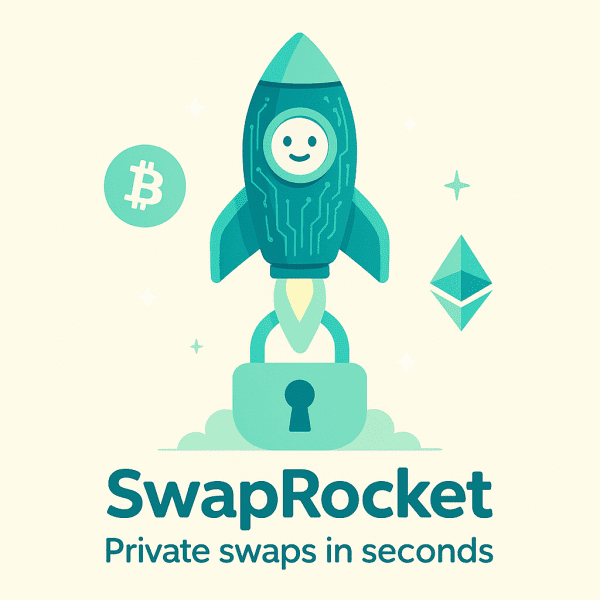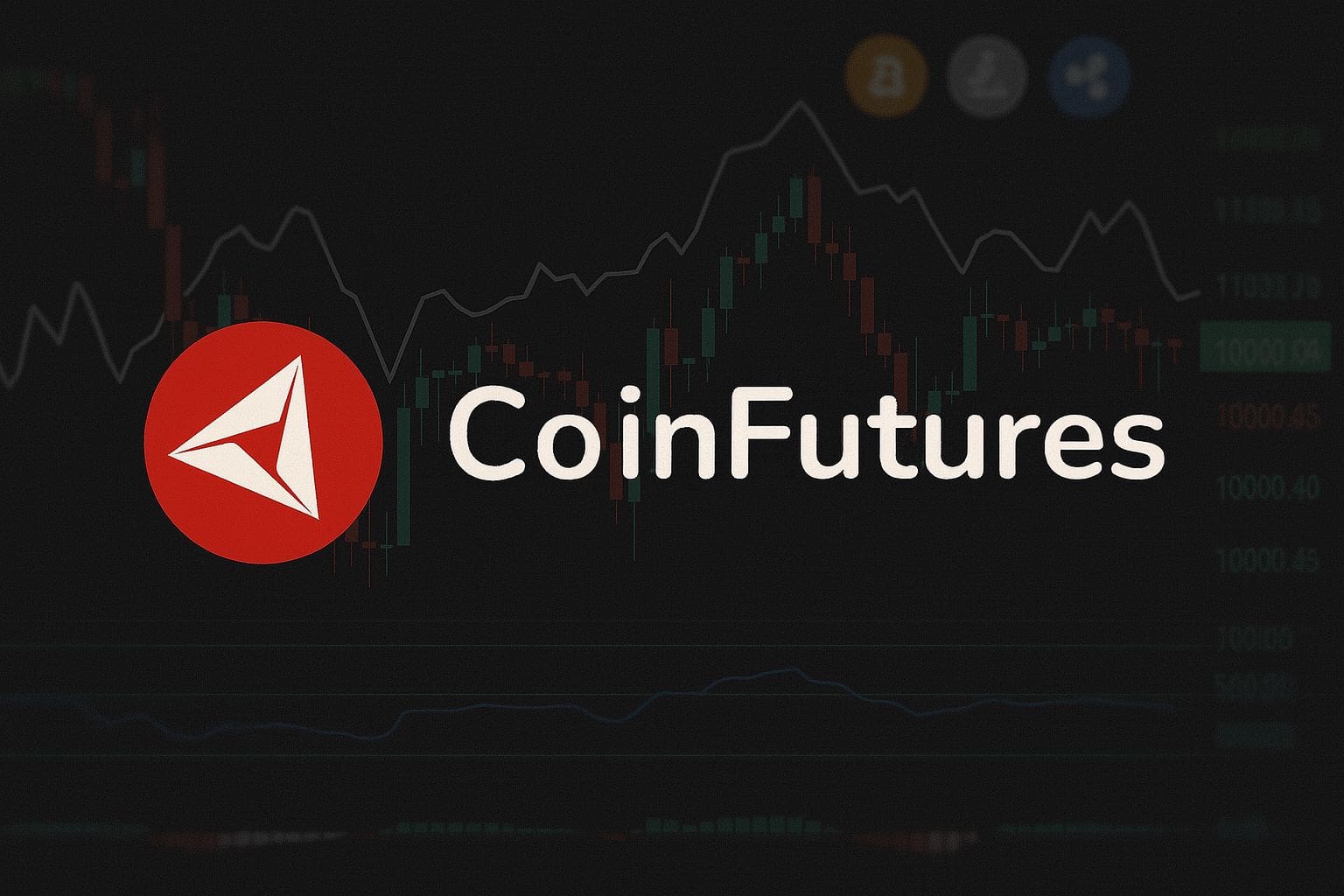Table of Contents
The Nigerian cryptocurrency market operates on ingenuity and urgency. Traders have to deal with shifting regulations, unstable banking integrations, and surveillance everywhere. Yet anonymity is a must. Traditional exchanges with Know-Your-Customer (KYC) checks remove privacy, this affects investors who prioritize personal freedom over bureaucratic procedures.
Non-KYC exchanges help to resolve this issue—allowing investors to trade without revealing their identities. These exchanges offer instant access, fast settlement, and non-custodial security. On the other hand, anonymity raises serious questions like, Are such platforms safe? How do they handle Nigerian liquidity limitations? In this article, we revealed five of the most powerful non-KYC exchanges available in the market today, based on speed, security, and ease of use.
What is KYC in Crypto

Know Your Customer (KYC) is a regulatory requirement that compels finance platforms to ensure that the users’ identities are verified. Centralized exchanges will ask for government-issued IDs, addresses, or biometric information before granting trading access. This setup was put in place to curb money laundering and finance-related crimes.
But, the downside is severe. Identity leaks have already impacted millions of crypto users worldwide. In Nigeria, where distrust in banking systems is widespread, KYC undermines crypto’s foundational promise—sovereign, permissionless trade. Non-KYC exchanges bypass this process, allowing users to carry out transactions without personal data. For many, this is not just convenience; it is survival in a system that often sidelines financial independence.
5 Best Non-KYC Crypto Exchanges in Nigeria
1. Best Wallet
Best Wallet is a decentralized exchange combined with a non-custodial wallet. It enables instant trading across ERC-20 and BEP-20 tokens, ensuring traders keep full control of their assets without revealing personal information. Its liquidity pools deliver competitive market pricing, while its app design caters to both beginners and professionals. Although Bitcoin and Solana support are on the way, it remains the top option for anonymous Nigerian traders.
Key Features:
- No KYC; full anonymity
- Multi-asset support across Ethereum and Binance Smart Chain
- User-controlled private keys
- Accessible across web, desktop, and mobile
Pros:
- True privacy
- Market-leading liquidity pricing
- Non-custodial wallet included
Cons:
- Bitcoin and Solana support are still in development
- Some features are under construction
2. SwapRocket – Instant Swaps Across 1,500+ Cryptos

SwapRocket facilitates crypto swaps by eliminating account creation and custody risks. Coverage of over 1,500 assets, including Bitcoin, Ethereum, and Solana, allows users instant entry into diversified markets. The transparent fee model gives users confidence, while the minimalist interface makes it friendlier for beginners. For Nigerian users seeking simplicity and speed, SwapRocket is a great no-KYC platform for anonymous, instant trades.
Key Features:
- Non-custodial model
- Transparent fees, built into displayed rates
- 24/7 customer support
- Beginner-friendly interface
Pros:
- Fast execution
- Strong asset diversity
- Transparent pricing
Cons:
- Mobile app not yet released
- Very high-value trades may trigger manual verification
3. GhostSwap – Anonymous Cross-Chain Swaps

GhostSwap is privacy-first trading without any need for personal information. With 1,500+ assets supported across different chains, it provides instant cross-chain swaps with non-custodial protection. With more than 1 million global users and $600 million traded volume, GhostSwap is becoming trusted in the anonymous trading space. For Nigerian traders looking for quick, secure, and decentralized swaps, GhostSwap provides a secure and transparent experience.
Key Features:
- No KYC or account creation
- Cross-chain compatibility
- Security-first design with guaranteed refunds
Pros:
- Beginner-friendly
- Fast cross-chain swaps
- Transparent fees
Cons:
- Limited advanced trading tools
- Slower customer support
4. TorrentSwap – Multi-Chain Exchange with Smart Contract Security
TorrentSwap operates with audited smart contracts that facilitate clear, trustless trading. More than 16 blockchains, including Ethereum, Bitcoin, and THORChain, are supported by the exchange, which makes it a suitable choice for Nigerian users who require multi-chain support. It typically takes transactions 10–30 minutes to complete, depending on blockchain speeds. There are no accounts, no KYC, and global accessibility, which makes TorrentSwap symbolize quick, secure, and borderless trading for privacy-conscious investors.
Key Features:
- Fully anonymous, no account setup
- Non-custodial, smart contract execution
- Global access with no geo-restrictions
Pros:
- Fast execution speed
- Wide blockchain support
- Strong security guarantees
Cons:
- Limited customer support
- Service focused solely on swaps
5. CoinFutures – Gamified Futures Without KYC

CoinFutures offers a creative futures trading experience without requiring identity checks. Users speculate on short-term price movements with leverage up to 1000x, choosing assets like Bitcoin, Ethereum, Solana, and Dogecoin. Designed like a game, it removes the complexity of traditional order books while still providing risk tools such as stop-loss. For beginners and Nigerian traders seeking fast, entertaining exposure to markets, CoinFutures is unmatched.
Key Features:
- Gamified futures trading
- Instant cash-out anytime
- Built-in leaderboard with ROI metrics
- Risk management tools like stop-loss
Pros:
- Engaging interface
- Supports major assets
- No KYC, fast onboarding
Cons:
- Futures are simulated—no real contracts
- Limited asset range
Factors to Consider When Choosing a Non-KYC Exchange in Nigeria
1. Liquidity Depth
Liquidity determines how easily trades are executed without slippage. Platforms plugged into deep liquidity pools guarantee smoother order execution and proper pricing. Nigerian users must consider exchanges with multi-partner liquidity aggregation to avoid inflated spreads or prolonged delays. Liquidity is lacking, even the most anonymous platform isn’t feasible for frequent trading.
2. Non-Custodial Design
A non-custodial model permits traders to have full control of their money. Custodial exchanges pool risks, and their customers are exposed to hacks and regulatory freezes. In comparison, non-custodial non-KYC sites move assets directly from wallet to wallet, cementing independence. Nigerian traders can benefit much from such models, given the banking system’s temperamental attitude towards digital assets.
3. Fee Transparency
Clear fee structures are essential. Other exchanges hide fees within spreads or include unexpected withdrawal fees. Transparent exchanges display total fees upfront so traders know the costs before they confirm trades. Nigerians who trade on thin margins need such transparency, and fee transparency becomes an essential factor in selecting a good anonymous trading exchange.
4. Cross-Chain Support
Cross-chain asset mobility is essential. Nigerian traders tend to exchange altcoins or hedge with stablecoins. Cross-chain enabled platforms facilitate this, without the need for multiple intermediaries. Compatibility with more blockchains offers flexibility and prevents risks linked to network congestion or token unavailability.
5. Reputation
Reputation suggests reliability. Volume statistics, reviews, and track records establish credibility in anonymous transactions. Nigerians ought to avoid untested websites with no verifiable activity or audits. Community-verified exchanges reduce scam risks and demonstrate tried-and-tested resilience in handling high-volume trades without compromising speed or user security.
What Are Security Tips to Consider When Using a Non-KYC Exchange?
1. Enable Two-Factor Authentication
Two-factor authentication (2FA) greatly improves account security. Even when login details leak, attackers won’t be able to access accounts without the second verification process. Nigerian traders should always enable this feature where possible, with authentication apps being used instead of SMS for better security.
2. Use Personal Wallets
Holding funds in personal wallets reduces exposure. Exchanges should only be used for trading or swaps. Long-term holding is reserved for hardware or software wallets in which users hold private keys. This is what secures funds from hacks as well as exchange closures.
3. Verify URLs
Phishing does not sleep. Traders should always confirm website URLs before entering wallet details. Bookmarking official exchange web addresses prevents spoofed lookalike sites. Due diligence in this area prevents costly security breaches in Nigeria’s high-speed crypto ecosystem.
4. Start Small
Testing with small volumes builds confidence in an exchange’s systems. Nigerian traders are able to test swap speed, fees, and functionality before trading with more significant volumes. This approach minimizes losses from any potential mistakes or platform failures when learning platform mechanics.
5. Secure Recovery Phrases
Private keys and recovery phrases must be offline and secure. Writing them down physically and storing them in secure places ensures that access is never lost. Nigerian users with only digital backups can lose their funds forever if devices fail or accounts are compromised.
Frequently Asked Questions (FAQs) About Using Non-KYC Exchanges in Nigeria
Is it safe to use non-KYC crypto exchanges?
Yes—if non-custodial. Platforms like Best Wallet or GhostSwap never hold custody of your funds, so hacks or freezes are less likely to occur. Scams do exist, so utilize audited, reputable platforms.
Are non-KYC exchanges legal in Nigeria?
There is no explicit prohibition. Nigeria bans banking access to centralized exchanges, but peer-to-peer and decentralized platforms can still operate.
Do these platforms accept Naira transactions?
Most non-KYC exchanges are crypto-to-crypto specialists. Traders usually buy stablecoins like USDT through the Binance P2P marketplace first and then trade further.
Are non-KYC exchanges riskier than centralized platforms?
Risk is unique. Centralized platforms may freeze funds due to regulatory pressure, but decentralized non-KYC exchanges place all the responsibility on the user.
Can beginners use these platforms easily?
Yes. Platforms like SwapRocket and CoinFutures make it simple with user-friendly designs for new entrants.
Conclusion
Nigeria’s cryptocurrency community demands resilience and anonymity. Non-KYC exchanges solve regulatory and security problems, supporting anonymous trading while promoting user sovereignty. Best Wallet is the most feature-dense, while SwapRocket and GhostSwap are the most liquid and cross-chain. TorrentSwap offers smart-contract trust, and CoinFutures gamifies new-trader access. These services illustrate one fact: Nigerians don’t need to compromise identity or control to trade crypto.

